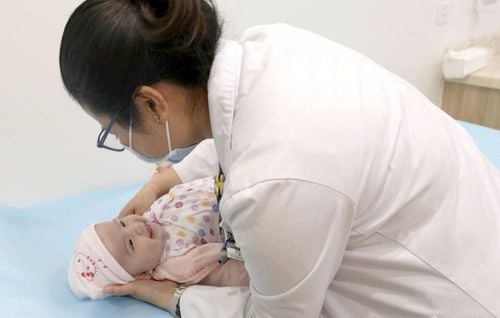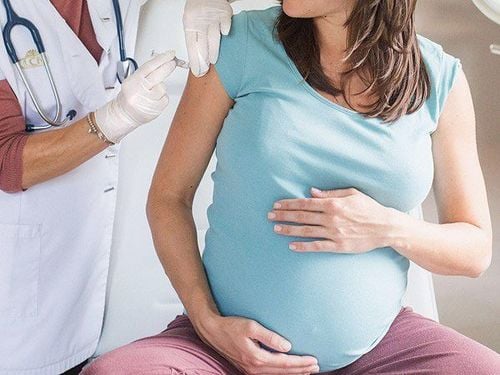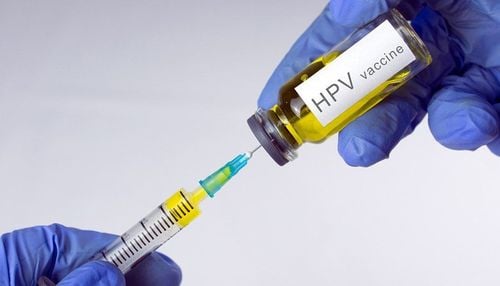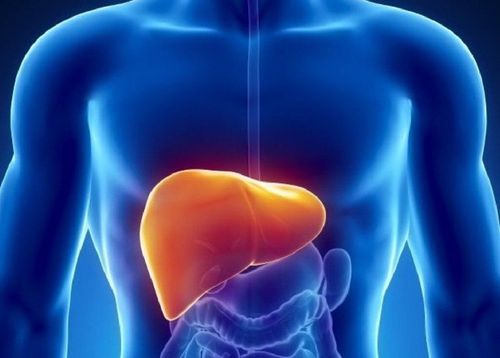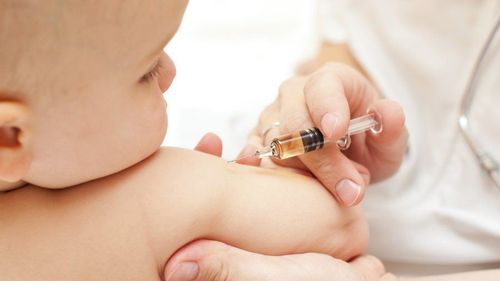This is an automatically translated article.
There are 4 vaccines recommended for prepubertal children aged 11-12 years. Vaccines given to prepubertal children help prevent very serious diseases, such as meningitis and cancer caused by HPV infection.
1. Vaccines for children 11 to 12 years old
Similar to vaccination in infants and young children, adolescents continue to need prepubertal vaccinations to prevent infection. In addition to the annual flu vaccine, children need three other essential vaccines before they reach adulthood, a period when they are more exposed to pathogens.
Entering the pre-pubertal stage from 11-12 years old, children should receive vaccines to help prevent the following diseases:
1.1. Meningitis (MenACWY) - 1 dose of Meningococcal Conjugate Vaccine protects children against four types of meningococcal bacteria that can cause serious infections and even death. The most common types of meningococcal infections are:
Meningitis; Infection of the membranes covering the brain and spinal cord; Septicemia . Meningitis can progress very quickly and be severe. Even with treatment, 10 to 15 cases out of every 100 people with meningococcal disease will die from the disease.
The US Centers for Disease Control and Prevention (CDC) recommends two doses of meningococcal combination vaccine, with the first dose being the vaccine for children 11 to 12 years old. A second dose is given to 16-year-old adolescents to increase protection for children in the age group at greatest risk of meningitis.
1.2. HPV - 2 doses Human papillomavirus (HPV) belongs to a group of more than 150 different viruses that can cause serious infections. Although most cases of this virus infection go away on their own, there are still some diseases that leave serious complications such as:
In women: Causes cancer of the cervix, vulva and vagina; In men: Cancer of the penis ; Both men and women: Cancer of the anus and back of the throat (oropharynx); Some HPV infections can also cause genital warts.
In the United States alone, about 14 million people are infected with HPV each year. The most effective way to prevent HPV infections and cancers is to get two full doses of the HPV vaccine. The first dose of vaccine is given when the child is 11-12 years old and the second dose is given 6-12 months later.
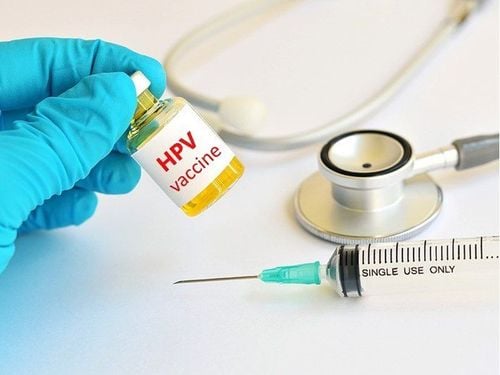
Biện pháp hiệu quả nhất giúp ngăn ngừa nhiễm trùng và ung thư do HPV gây ra là tiêm đủ hai liều vắc xin HPV
1.3. Tetanus, diphtheria and pertussis (Tdap) - one dose Tdap vaccine is a pre-pubertal vaccine that enhances protection against three diseases of tetanus, diphtheria and pertussis.
Tetanus : This is a bacterial infection that enters the body through open wounds in the skin. The bacteria produce a toxin that causes muscle spasticity and cleft palate, which is life-threatening.
Diphtheria : This is a serious bacterial infection that is spread when an infected person coughs and sneezes. Diphtheria creates a thick coating at the back of the nose or throat, which in turn leads to difficulty breathing, heart failure, paralysis, and even death. Whooping cough: Pertussis manifests as intense, uncontrolled coughs that often make it difficult for the patient to breathe. The disease is highly contagious and can be fatal to infants. Since 2010, states in the United States have reported tens of thousands of pertussis cases each year.
CDC recommends an additional dose of Tdap vaccine for children 11 - 12 years old against three quite dangerous diseases above.
1.4. Influenza - Annual Influenza is a rapidly contagious community respiratory illness caused by influenza viruses. Every year, millions of people get flu, hundreds of thousands of which are hospitalized, and up to tens of thousands of people die from flu-related causes.
A flu shot can prevent illness, save time at work or school, and reduce doctor visits and hospitalizations for flu-related illnesses. According to a recent CDC study, flu shots can reduce children's risk of dying directly or indirectly from the flu by nearly 50%.
CDC recommends that everyone 6 months of age and older get a seasonal flu shot each year around the end of October to ensure maximum effectiveness against this disease. Children 6 months to 8 years old need their first dose of flu vaccine. In addition, children who have previously received a dose of flu vaccine should receive a second dose, with at least 28 days between doses.
A good time to get the above vaccines is during the annual health and fitness exams at school or at home. Parents should keep a record of their child's immunization history and consult with their doctor annually about necessary vaccines for 11- and 12-year-olds.
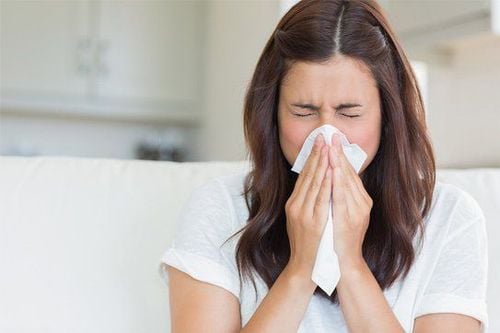
Cúm là một bệnh đường hô hấp có khả năng lây nhiễm nhanh chóng trong cộng đồng do virus cúm gây ra
2. Side effects and treatment
After receiving the vaccine, some children may experience the following symptoms:
Redness and soreness at the injection site : Apply a cool, damp cloth or cotton pad to the area that is red, sore, or painful. swelling; Fainting after vaccination: This is more common in adolescents than in infants and young children. To prevent fainting after vaccination, you should sit still or lie down for about 15 minutes at a medical facility before leaving and returning to normal activities. Other serious side effects are very rare, but before the injection, it is necessary to clearly tell the doctor if the child has a serious allergy, such as an allergy to:
Yeast; Latex; Egg. Health experts recommend that children, including pre-pubertal subjects, should receive all vaccines according to the given immunization schedule. The choice of any vaccine should be based on the child's age, health condition, and a number of other factors. In general, the four primary vaccines for 11- to 12-year-olds that the CDC recommends are: influenza, HPV, meningococcal, and Tdap (protects against tetanus, diphtheria, and pertussis).
Vinmec International General Hospital uses a source of high-quality vaccines, of clear origin, suitable for each age to be vaccinated, ensuring safety from the stage of registration, preservation until put into use. .
For direct advice or to schedule an appointment to vaccinate your child at Vinmec, parents please book an appointment HERE or contact HOTLINE:
Vinmec Times City - Hanoi: 024 3974 3556 Vinmec Ha Long: 0203 3828 188 Vinmec Hai Phong : 0225 730 9888 Vinmec Da Nang : 0236 3711 111 Vinmec Nha Trang : 0258 3900 168 Vinmec Central Park - City. Ho Chi Minh City : 028 3622 1166 Vinmec Phu Quoc : 0297 398 5588 Vinmec Royal City Clinic - Hanoi: 024 3975 6887 Vinmec Saigon Clinic - (028) 3520 3366 Vinmec Gardenia Clinic - Hanoi: 024 3975 6788 Vinmec Metropolis - Hanoi: 024 3975 6886
Please dial HOTLINE for more information or register for an appointment HERE. Download MyVinmec app to make appointments faster and to manage your bookings easily.
Reference source: cdc.gov



